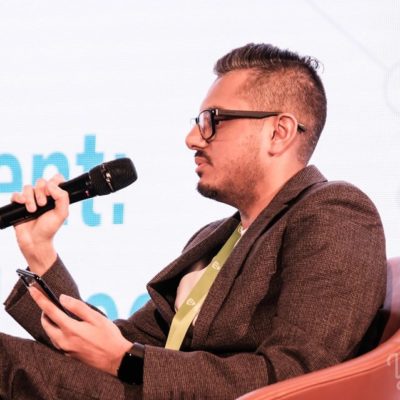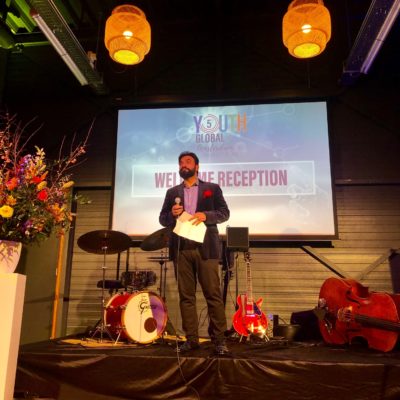Technology connects us as never before. Easy access to
information and the accelerating pace of interactions have revolutionized
almost all knowledge-based industries. Mass media is not an exception.
With the dawn of a new era of World Wide Web, traditional
journalism has reached a tipping point. The printed press is in danger of
extinction. Broadcasting is in decline. How can journalists find their
own place and keep the profession afloat? We put this vital question
before Julia Kinash, the Editor-in-chief of Youth Time Magazine, on the
sidelines of the Youth Global Forum in Amsterdam.
Orange Magazine: Can journalism prosper in the digital age?
Julia Kinash: Journalism has transformed a lot. Bloggers, youtubers are pacing the
way for a new kind of mass media. I am not a fortune teller but it is
obvious that in the foreseeable future media will turn to digital even further.
Taking into account easy and fast access to information today, the young
news-consumers are keen to get what they want here and right now.
What we should partly blame is widespread reluctances to adjust to
the fast-growing modern world. Evidence suggests that media
companies have been quite slow to shift to digital. They’ve clung to
traditional print and broadcast media platform, even when it is crystal
clear that audiences are moving digital.
OM: Social media has changed our lives dramatically. Its users are its
reporters. How can professional journalists compete?
JK: Big commercial online news providers are reducing the stuff in large
numbers while social media firms swallow advertising revenues. Social
networks are gaining momentum and are becoming even more influential, and
the internet has an answer for everything. Unlike traditional journalism,
social media networks do not have an obligation to tell the truth. We have
to be aware and use these information weapons for the benefit of
humanity, adhering to the basic principles of journalism: verification,
independence and accountability.
OM: How to distinguish quality journalism from fake news?
JK: Journalism may be different, but first of all independent. It is not just
enough to follow the trends, but also have the room for discussion and,
of course, critical thinking. Journalism should be honest. Consider ethical
aspects, first of all. Every journalist, at the beginning, is a human. The
truth is a struggle. It takes hard graft. But the struggle is worth it. What
shall we do? Of course, highlight the role of critical thinking and
promote media literacy.
OM: What is your prime advice for young aspiring journalists attending the
Youth Global Forum?
JK: Be open for the latest developments, be critical, don’çt trust everything you
read or hear, double-check and try to find the hidden message beyond
the news flow.
by Alena Tsimashchuk




